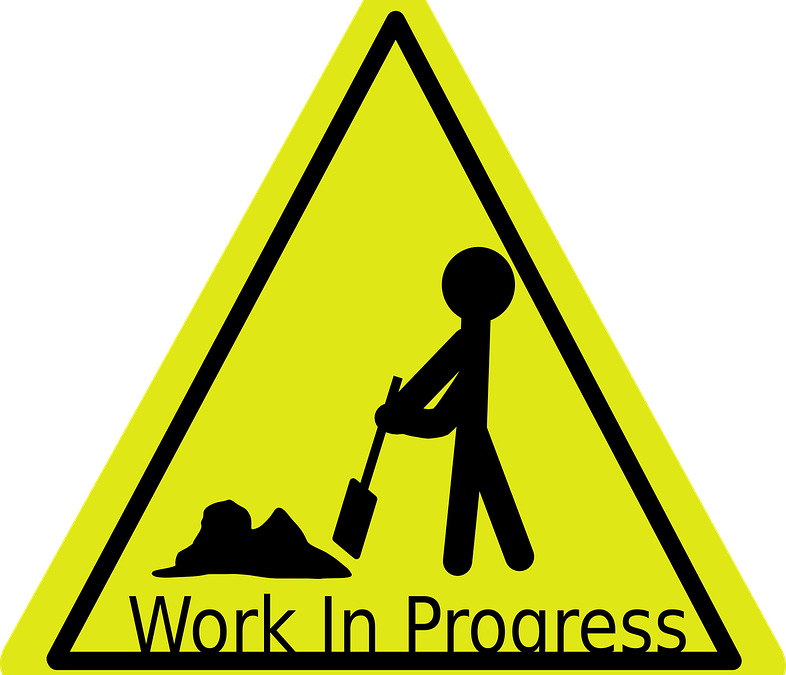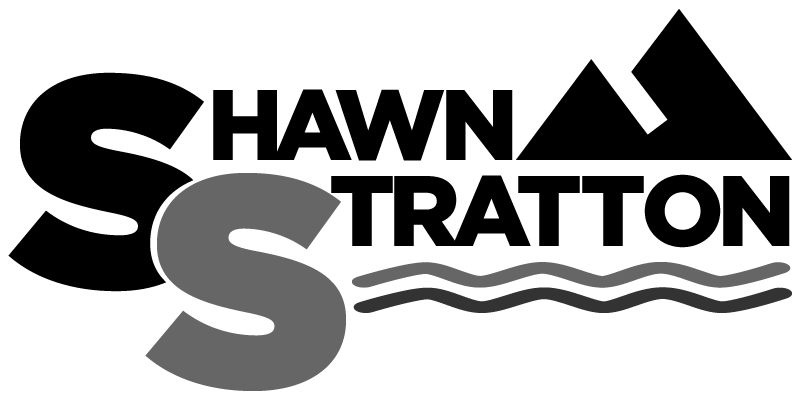by Shawn Stratton | Jan 28, 2016 | Blog Posts
Team discipline is an essential element of any high performance team and the leader cannot direct it alone. Sure, a team leader’s responsibility is to lay out clear expectations and a compelling purpose for the team mission but a huge part of team discipline has to come from within the team. If a leader spends his or her time preaching discipline and wagging fingers, their efforts to control the discipline within the team will soon fall on deaf ears. There is a reason people have a harder time speaking in front of their peer group. Their reason is that they care how they will be viewed amongst their cohort more than a group of strangers they will probably never see or hear from again. To quote an example of this from my experience, when leading expedition teams that I had no hand in selecting, friends would often ask me, “what do you do if you have a bad team?” and “what keeps them from going all Lord of the Flies (a classic novel where a well-behaved party of schoolboys trapped in the wilderness has turned into a tribe of faceless, murderous savages) out there in the mountains?” Quality Teams Self Police You may ask that if effective team discipline comes from within the team, is it out of the leader’s hands entirely? No, not at all. In every team, there are people who naturally emerge as leaders in their own right. There may be a vocal leader, a silent leader, the one with the most experience, one who has the highest level of a specific talent, oozes the most...

by Shawn Stratton | Jan 6, 2016 | Blog Posts
Of all the things that can boost inner work life, the most important is making progress in meaningful work, when a job gives them the opportunity to experience achievement. Workplace Motivation Tips from Shoveling Snow This is another post under the topic of Managing Underperformers in the lead up to my upcoming webinar and course under the same topic. Perplexing to many, I have always enjoyed shoveling snow. Besides the bonus of fresh air and exercise that comes with shoveling a driveway, I was mostly motivated by seeing continuous progress in meaningful work. Fortunately, progress is easy to see when shoveling (when it has stopped snowing) and sure it may not be the most meaningful work but the driveway does need to be cleared to get the car in and out and my family will be happy to have a clear driveway. That’s meaning enough for me…. When I have the time to do a good job. As a leader, if you are struggling with unmotivated team members, take a close look at not just their roles and responsibilities but the actual work they do day in, day out. Are they able to see the actual progress in their work and how it is contributing to the project or team goal? Perhaps they are unaware of the impact their progress has on the team. When we think about progress, we often imagine how good it feels to achieve a long-term goal or experience a major breakthrough. These big wins are great, but they are relatively rare. If the progress of someone’s work is not clear to them, you...

by Shawn Stratton | Jan 1, 2016 | Blog Posts
HAPPY NEW YEAR – HERE’S TO YOUR BEST YEAR EVER ———— Dealing with the weak link It was the day we had been anticipating for weeks. We had been paddling remote rivers in Northern Alaska and today was the day we would reach the Arctic Circle. A day before, Beaver Creek had spit us into the Yukon River and with two days of upstream paddling, we would reach the Arctic Circle, a major milestone for the trip. The student leader of the day was Mike. Mike had struggled with attitude issues for the whole trip and he, when addressing the group with the plan for the day, said “Guys, I hope you are having fun now because today’s going to suck!” Leading an expedition in the mountains, there was often one team member that was slower than others or had the worst attitude, or the most medical issues, or the worst navigation skills or the….. You get the idea. On every team there is usually one weak link (WL). As a leader, how you manage the WL can make or break your team experience. The WL may not prevent you from achieving your goal but they can make the experience extremely difficult. The WL is not usually a destructive team member. They are usually performing their role as asked, but they are doing it to a slightly lesser ability than the others at the time. Even on an Olympic gold medal winning rowing team, there will be someone who is the weakest rower. 5 Ways to Manage the WL: Acceptance: Before you can manage a difficult team member, you...
by Shawn Stratton | Dec 24, 2015 | Blog Posts
...

by Shawn Stratton | Dec 17, 2015 | Blog Posts
Last week, I had the great fortune to attend Dave Fost’s, my uncle, funeral in a suburb of Toronto. Dave was an outstanding man and mentor to many, including me. He was a fun loving, passionate man who took great interest in the lives of his nephews. He was the uncle everyone would want to have. Friends and family were coming from near and far to attend the celebration of this wonderful man. At first, it seemed my whole family would be traveling to Ontario for the funeral except for me. I was scheduled to attend a conference the previous weekend in Halifax and would be away from home 5 days already. With Alexandra’s (my wife) demanding work schedule and two small kids at home, this would already be maxing out the time I could be away from home without employing extra help. When my parents learned Uncle Dave’s funeral would take place just days before my mother’s 70th birthday, they thought it would be a great opportunity for our family to spend the weekend together to celebrate her birthday. My two brothers who were traveling from Vancouver and Brazil to attend the funeral were thrilled about the birthday celebration plan and would join them for the weekend. It was decided to have the birthday weekend in Montreal. I was excited for them to be able to spend the time together but saddened that I wouldn’t be able to make the trip, given my prior commitments and family demands. You Have To Ask Everyone, including Alexandra, wanted me to be able to attend both of these important family events....

by Shawn Stratton | Dec 12, 2015 | Blog Posts
I don’t have the time… We are living in a busyness epidemic! Think about the number of times in the last month your response to the question “How are things?” with “Busy!” or some variation of busy. Let’s take a closer look at ‘busy’. What Does It Mean To Be Busy? Busy means you hardly have enough time in the day to accomplish all the IMPORTANT tasks at work and at home you would like to accomplish. I stress the important tasks because by the nature of living life there will usually be items we don’t get to in the run of a day. There are usually more items on the To Do list at work, more studying to be completed and more housework to be done than can be completed each day. What You Mean When You Say You Are Busy… My definition of Busy and Stress are similar: stressed means giving a shit about something and busy means giving a shit about too many things. The problem with busy is that most people are using the word when they struggle with completing not just the important tasks but also all the tasks they could ever do in the run of a day. Even just saying you are busy can cause the same emotional response on your body and mind that stress has and the detrimental effects that stress has on the body has been well documented. Think about the last time you were not busy? Can you even remember a time? If you are not busy, are you bored or is everything in balance? Think about the...

by Shawn Stratton | Dec 4, 2015 | Blog Posts
A manager asks more questions – provides less feedback A major role of any manager is to support others in getting stuff done. This involves instructing, advising, coaching, and even cheerleading. The manager’s coaching role may be the most valuable impact they can have on an employee in the organization. The success of a manager’s coaching role usually comes down to the questions they ask. In mentoring employees, a great leader will ask quality questions long before providing feedback. Before I learned about ‘coaching questions’ I was quick to provide advice through feedback to students and clients who were struggling with a challenge. I still have to catch myself from doing this because it is in our human nature to want to fix things for people, especially when we feel we know the answer. Often, we instinctually do this by blurting out the answer or at least our viewpoint on how they could solve their struggle. We want to end their (and perhaps the team’s) pain as soon as possible. Unfortunately, telling them what you think is the answer is not the most effective way to solve their problem. In the best case, telling them will fix the situation in the short-term. In the worst case (and most often), your words will go in one ear and out the other. The most effective problem solving tool a manager can use is asking them open-ended ‘coaching questions’, allowing the employee to discover the solution for him or herself. It is not as important that they come up with the answer you had in mind. The most important thing is that...

by Shawn Stratton | Nov 26, 2015 | Blog Posts
You are a good person who wants to be a great leader and teammate. You want to follow what I call the ATS rule of team building, that is you want to… do your part AND THEN SOME to help your team achieve their goals. Great, but how do you do this and still keep firm boundaries? I recently spoke with a client who was having a difficult time creating boundaries with her co-workers and supervisors. She wanted to keep everyone happy and be a great teammate by doing an extra task here and there. The problem was that she soon found herself being a dumping ground for many tasks that others didn’t want to do or didn’t know how to do but was their responsibility. She became the go-to person in the team to ‘get stuff done’. She was starting to feel disrespected, her core responsibilities were starting to suffer and she didn’t know how to stop the onslaught of work without feeling like she would be offending her teammates. Why Boundaries Are Critical Having firm boundaries is a critical element to becoming a successful leader, whether you are at the top of an organization or are working your way up. Setting boundaries around your time and responsibilities is easier said that done, especially if you want to practice the ATS Rule. (More on the ATS Rule) It is important to be a helpful teammate and leader but you need to protect your time furiously. You have roles and responsibilities to perform which need to take priority for you to do your job well. You only have so...

by Shawn Stratton | Nov 19, 2015 | Blog Posts
I want to take a moment to say Thank You for being on the leadership journey with me. Whether you read my posts each week or twice a year, I want you to know I appreciate you taking the time to read and share my blog posts. I also want to thank those who filled in the recent survey I sent out a few weeks ago. I was blown away by the tremendous response. The information gathered will help me serve you better in 2016. This week marks the one-year anniversary of me posting original weekly blogs! This is a big deal for me as it is a ton of work as writing is not something that comes naturally for me, like say a 20 km run, or leading a group in a hailstorm on the side of a mountain. When I started blogging regularly about three years ago, I started off writing once a month or so. Then I made a commitment to write every two weeks as I thought that would be my max output and the max you could probably tolerate. Then last year I met with my friend and mentor Hugh Culver who challenged me to post an original blog once a week. He showed me how to write a blog editorial calendar, and I was on my way. So, if it is such a struggle, why do I do it then? I do it mostly for you and a little for me. My whole business is centred on helping you become a more successful leader so you can achieve greater team and personal goals...

by Shawn Stratton | Nov 12, 2015 | Blog Posts
With Remembrance Day this week in Canada and around the world I have been thinking about leadership in the military and what we can learn from the great military leaders. It seems any time I read an article or hear a US Navy Seal interviewed about leadership, the word ‘humility’ comes up. When you think of classic military style leadership as portrayed in the movies, you often think of masculine, dominant, and authoritarian characteristics of a leader. Humility is probably not the first leadership trait which comes to mind when you think of the military but for these elite soldiers, humility is an essential quality of an outstanding leader. There is a common misunderstanding that humble leaders may lack confidence or may not be able to motivate others. In fact, humble leaders willingly admit both their strengths and weaknesses, have a high level of self-confidence, and are appreciative of others’ strengths. As a leader, displaying humility is one of the key ways in commanding team respect and convincing them to follow you. Think of a person in a leadership position who lacks humility. Now think about your respect level for that person. The journal Administrative Science published research in 2014, which showed “that bold and assertive leaders who lack genuine concern for others undermine their influence on subordinates.” They also discovered leaders’ humility gains acceptance from their team by appealing to the interests of the team and restraining their own ego. Humility doesn’t mean a leader is lacking confidence or is a pushover, the opposite in fact. Here are 7 ways great leaders show humility: 1. GIVE CREDIT WHERE CREDIT...















